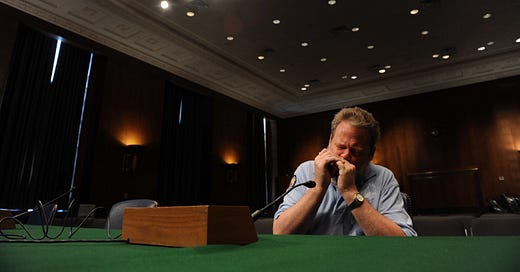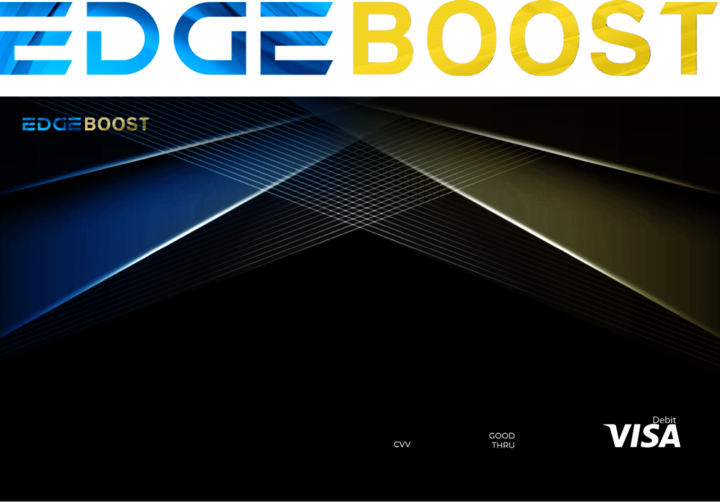Explain yourselves
CFTC questions Kalshi and Crypto.com over self-certification of sports contracts
News of the CFTC probe comes as Robinhood launches Kalshi partnership.
State by state: Ohio tax hike plan, Illinois DFS bill.
Feeling the Heat: NBA’s Terry Rozier under investigation.
Hit Paus: Loot boxes fuelling underage gambling, say Swedish authorities.
Unlock the power of real-time Ai facial recognition with Fincore’s TRI Biometrics:
Trigger any event instantly: such as blocking self-excluded players or welcoming VIPs.
Easy Integration: Works with almost any camera, including your current setup.
Actionable Insights: Use analytics to understand customer patterns and behaviour.
Trusted Accuracy: NIST-certified for reliable performance.
Question time
Objectionable conduct: The Commodity Futures Trading Commission is questioning digital exchange Crypto.com and prediction market maker Kalshi over the legality of derivatives-based Super Bowl sports events contracts.
The CFTC is allowed by statute to request additional information from companies that ‘self-certify’ their financial products.
The news came as Robinhood announced it was partnering with Kalshi to offer sports-based event contracts via its platform.
Ignorance is bliss: The derivatives regulator recently told Crypto.com to pause offering contracts on the NFL’s showpiece game while its lawyers tried to work out if the trading amounted to gambling under law.
It has since ordered both the Singapore-based crypto exchange and Kalshi to explain how their offerings are truly futures products and not just straight-up sports betting, Bloomberg first reported.
Neither Kalshi nor Crypto.com have halted their offerings.
In the clear: Separately, the regulator has said it won’t take enforcement action against Kalshi and its clearinghouse, Kalshi Klear, for not following swap transaction rules. Kalshi asked the CFTC to adjust an earlier ruling regarding reporting and recordkeeping obligations, which it did.
Kalshi can now let outside clearing firms handle trades, as long as they meet the conditions set in the CFTC’s no-action letter.
Out of the forest: Robinhood announced Monday the launch of its own sports-trading offering, via Kalshi’s exchange, for its Robinhood Derivatives clients.
Kick in the door: If Kalshi, Crypto.com and now Robinhood successfully establish regulated sports futures, it could pave the way for other major players to enter this space, said Chris Gerlacher, senior political analyst, Prediction News.
“The potential for crossover is significant, particularly if the CFTC allows contracts like money lines, point spreads and over-unders to be traded,” he said.
“In this context, smaller, agile companies like Sporttrade may have an edge in transitioning to the financial industry faster than larger players like DraftKings or FanDuel, who are heavily invested in state-by-state licensing and lobbying.”
While larger sportsbooks may shun the regulatory complexity and associated costs involved, Gerlacher added that the cases represent “a turning point for the integration of prediction markets into mainstream financial markets.”
EDGE Boost is a dedicated bank account for bettors built to encourage Responsible Gambling. EDGE has found that financial segmentation and budgeting into a Gaming bank account is the easiest and lowest friction pathway to promote responsible behavior. As a neutral financial layer across all gaming activity, EDGE can offer: Universal Limits across all Gaming Spend, Holistic Reporting, Accountability (Weekly transaction reports to friends), Bankroll Cool Downs, and Income Verification. All this with no Operator costs or integration.
For more information, go to www.edgeboost.bet
State-by-state update
Ohio: Gov. Mike DeWine has included a doubling of sports-betting tax to 40% as part of a raft of proposals to fund programs in the state’s next two-year budget. DeWine said the tax increase would bring in approximately $130m-$180m a year.
The governor accused sports-betting companies of being “extremely aggressive” and said Ohioans lost massive amounts of money to them each year.
“It seems to be only just and fair that some stadiums be paid for by them and it seems also fair that our young people, who you know they are targeting, will get some benefit by being able to play sports,” DeWine said during a press conference.
Illinois: A DFS legalization bill has been introduced in the state Senate calling for the regulation of both player vs. player and player vs. house contests, with a tax rate set at 10-15%.
DFS operators would be required to pay 8% of adjusted fantasy receipts as a licensing fee, which would be renewed every four years.
Minnesota: A second sports-betting bill has been introduced to the state Senate by Sen. Matt Klein. The bill proposes a 22% tax on OSB revenue, with all 11 of the state’s tribes permitted to offer both in-person and mobile sports betting.
Klein’s bill follows a similar bill filed in January by state Senator Jeremy Miller.
That would also allow the state’s tribes to offer in-person and OSB with a tax rate of 20% on revenue.
Mississippi: The bill that aims to legalize OSB in the state has received approval from the state House Gaming Committee. GGR would be taxed at 12%, with online licenses tied to retail casinos in the state.
Each casino will be able to partner with up to two online operators, with online betting expected to launch on December 8 if the bill is approved.
The bill is to be sent to the full House for further review.
+More
Slap on the wrist: BetMGM has been fined over $250k by the Pennsylvania Gaming Control Board, which found the operator allowed a self-excluded player to access its website over 150 times.
The Nevada Gaming Control Board has appointed Chandeni Sendall to its board. Sendall replaces Brittnie Watkins, whose four-year term expired at the end of January.
Florida: The Florida Gaming Control Commission has issued three cease-and-desist letters to Bovada, BetUS and MyBookie, alleging they are illegally offering online betting in the state.
Thailand: The Ministry of Finance has requested that the draft IR legislation allows for an increased casino floor space within the proposed complexes. Deputy finance minister Julapun Amornvivat said the ministry proposed increasing casino sizes from a maximum of 5% of the entire floor space to 10%.
Philippines: PAGCOR revenues rose 41% YoY to $1.92bn in 2024, led by growth in its primary revenue source of licensing fees to online gambling operators. The now banned POGO sector generated $51m of revenue for the year.
Brazil: The federal police authority has said it will oppose the proposed B&M casino legislation that is currently before the Senate, according to a report from CNN Brasil.
The opposition of the police is due to concerns about the potential for an increase in money-laundering activity.
The proposals have stalled in the upper house after being referred for further review ahead of the legalization of online gambling, which occurred on January 1.
UK: The Department of Culture, Media and Sport has restarted its Gambling Act White Paper hearings.
Feeling the Heat
Widening gyre: Miami Heat guard Terry Rozier is under investigation for allegedly altering his performance during a March 2023 game, as part of a federal probe concerning illegal sports gambling.
The US Attorney’s Office for the Eastern District of New York has been in contact with the NBA concerning the matter.
The investigation is part of a larger sports gambling scheme that has already implicated former Raptors forward Jontay Porter.
Oh, Mr Porter: Porter received a lifetime ban after the NBA found him guilty of “disclosing confidential information to sports bettors, limiting his own participation in one or more games for betting purposes and betting on NBA games.”
An NBA spokesperson confirmed to USA Today that in March 2023 it was alerted to unusual betting activity related to Terry Rozier’s performance in the Charlotte and New Orleans match-up.
“The league conducted an investigation and did not find a violation of NBA rules,” the statement added.
It noted the NBA was “now aware of an investigation by the US Attorney’s Office for the Eastern District of New York related to this matter and have been cooperating with that investigation.”
A heel: The Wall Street Journal reported that betting activity around Rozier’s performance was “anomalous enough” that it triggered alerts at monitoring service US Integrity. Rozier started the game, but played only 9:34 minutes before he left the court with a supposed foot injury.
He did not return and would subsequently miss the remaining eight games of the season.
According to the WSJ, several sportsbooks halted taking any further bets on Rozier markets for that day upon being notified by US Integrity.
Rozier has not been formally accused of any wrongdoing, per the paper.
Player Protection in New and Existing Markets Worldwide
Did you know? Mindway AI isn’t just a Danish company—it’s a global leader reshaping responsible gaming solutions across 62 jurisdictions around the world.
With solutions active in 38+ countries and available in 14 languages, Mindway AI transcends borders. We seamlessly adapt our expertise to diverse regulatory landscapes, meeting the unique needs and challenges of each area.
Learn more at mindway.ai
Hit Paus
Paus and Spel: Sweden’s regulator Spelinspektionen has found that loot boxes, skin gambling and previously unexplored digital marketing techniques are helping fuel a rise in young people gambling.
Boxed into gambling? The report found that 45% of young adults surveyed (aged 18-24) had purchased a loot box at some point in their lives.
Previously commissioned Public Health surveys in Sweden showed a rate of approximately 16% among the same age bracket
The regulator explained that, given the survey targeted individuals who had gambled for money in the last year, the inflated percentage is unsurprising.
A harmless thrill… until the bill: The survey, split into a ‘web panel’ and those that have opted into ‘Spelpaus’ – Sweden’s self-exclusion scheme – showed that 62% of those who had bought their first loot box before the age of 12 undertook real money gambling before the age of 18.
26% of self-excluded gamblers surveyed who purchased a loot box before the age of 12 started gambling for real money before the age of 16.
All male respondents surveyed admitted having had the ‘chance’ to make a purchase within a video game.
100% of respondents agreed that purchasing loot boxes increases the likelihood of monetary gambling later in life.
The study also mentioned other research which showed no relationship between people that played video games for three hours daily and the likelihood of gambling when turning 18.
From skins to sins: Spelinspektionen’s research showed that 48% of males from the web panel had gambled with skins in the last 12 months. This rose to 62% among those using Spelpaus.
49% of females on the web panel had no idea what skin gambling was, and only 8% had bet using skins.
Only 11% of males using Spelpaus had never heard of skin gambling, compared to 56% of females.
Skinned alive: Notably, 57% of respondents who had gambled with skins at some point in the last year had also gambled for more than they could really afford. This is compared to 31% of those who had not used the digital-means to gamble.
After regulatory action in March 2024, where three sites were ordered to shut, traffic to skin betting sites decreased 60% from January to September.
A stat to make you Twitch: 76% of people who told Spelinspektionen they watched weekly or monthly live casino streams (on Twitch/Kick) admitted they gambled more than they were willing to lose, compared to 27% of people who did not watch casino streams at all.
Over two-thirds of those using Spelpaus had watched casino streams in the last 12 months, with 56% of the web panel admitting the same.
Read across: For more, see the most recent edition of Ollie Ring’s Esprouts newsletter.
Events calendar
Feb 26: Regulatory and compliance track, SBC Summit, Rio de Janeiro
Mar 10-13: Regulating the Game, Sydney
Mar 12-13: Next: NYC 25, RG Hub, New York
May 8-9: Leaders in Compliance Conference, Frankfurt
GuardDog, powered by Underdog, is a pioneering investment fund dedicated to fostering innovation in responsible gaming.
GuardDog supports and accelerates early-stage startups focused on building new and creative solutions to address problem gaming and further responsible gaming.
Ready to be one of the underdogs of responsible gaming?
Visit to apply: https://underdogfantasy.com/guarddog
An +More Media publication.
For sponsorship inquiries email scott@andmore.media.











